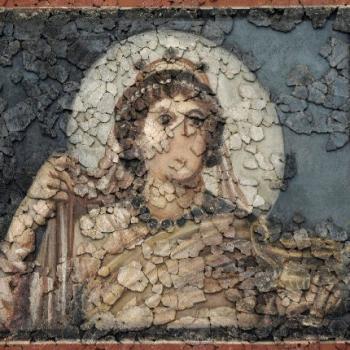By Bruce Epperly
 I am delighted that Phil Mickelson won the Masters this weekend. While the media focused on the athletic and marketing redemption of Tiger Woods, there was a deeper story going on, a story of the spirit, of persistence, and of healing. It was a story of redemption, if, by redemption, we mean healing, transformation, and grace.
I am delighted that Phil Mickelson won the Masters this weekend. While the media focused on the athletic and marketing redemption of Tiger Woods, there was a deeper story going on, a story of the spirit, of persistence, and of healing. It was a story of redemption, if, by redemption, we mean healing, transformation, and grace.
When Mickelson made the final putt to win the Masters, I called my son, a cancer survivor, and his first response was "the good guy won!" It's only a game, but I wept in remembrance of my experience as a father dealing with my only child's cancer. Now, I recognize that goodness is no guarantee of success and righteousness; despite some biblical passages, goodness is not always rewarded. The biblical legend of Job reminds us quite realistically that you can do all the right things and still suffer; in golf, you can deserve the victory and still be the runner up. Indeed, often sports superheroes are persons of dubious moral caliber, and nice guys finish last.
Health and illness, and victory and defeat, are not always linear. There are many factors beyond our control or the quality of our spiritual lives that lead to a cure or to death from a serious illness. All the prayers and love may not cure a serious illness of body, mind, or spirit. Still, there was a moment of redemption and healing when Phil Mickelson won the Masters, hugged his wife who is being treated for breast cancer and could barely marshal the energy to make it to the course, and embraced his three young children. It was a hopeful and happy moment (I almost said "ending," but Amy and Phil still have treatments ahead and years ahead before a cure can be pronounced). It was also an image of hope for all of us who have loved persons with cancer, and who know what it's like to feel helpless, having nothing but love and faith to give, and then discover that love and prayer are enough!
I don't know about Phil Mickelson's religious faith, but I know about his love for his wife, his mother who is also being treated for breast cancer, and his children. It was a defining moment for the Mickelson family and for all of us who pray for recovery from cancer and life-threatening illness for ourselves and loved ones. But, in those happy tears, I experienced a love and faith that was not bound by denomination or creed, the faith born of saying "yes" to hope and love, even if God's name is not invoked.
Now, I like Tiger Woods. He is also in recovery, and I pray for his healing. But, I must admit that I hoped that he would not win the Masters. I am not into punishment, and I recognize the realities of addiction. I wish, and pray, that Tiger will experience authentic redemption, first, as a person, then as a parent (and, perhaps, as a spouse), and finally as a professional golfer. I hope Tiger will win another major championship, but not this time, for his own spiritual well being. Premature redemption, like premature forgiveness, can cause more harm than good.
Years ago, German theologian Dietrich Bonhoeffer criticized the phenomenon of "cheap grace," that is, the sense that the love of God -- or, in the case of Tiger Woods, recovering sponsors and receiving adulation -- requires little or nothing of us spiritually or morally. Perhaps, Tiger spoke the truth of his situation when he noted that, "I have to take a little time off and evaluate some things." I hope that some of his evaluation involves a commitment to meditation, not just to be a better golfer, but to find his spiritual center. Healing takes time, and it means focusing on what's really important, which right now is not winning tournaments or retaining sponsors, but getting down to the basics of transforming your life and relationships.
In the Buddhism that Tiger affirms, and in the Christianity that I affirm, healing is a multifaceted process that involves facing the challenges of life directly and without illusion, letting go of the need to control the details of our lives, including the need to succeed, and awaiting a spiritual grace that emerges when we have reached the end of our abilities. While Buddhism and Christianity may differ in terms of their understanding of the source of healing, they know that healing can occur, and may most often occur, in the midst of defeat and difficulty. Gautama's youthful encounter with aging, sickness, and death inspired him to seek enlightenment. The cross of Christ, like the Psalmist's valley of the shadow of death, are paths that must be taken in order to experience resurrection. This is a grace that can be short-circuited by too much success too soon, or too quick of a recovery. It is a grace that emerges when we, to use Christian language, realize that grace is sufficient for us and that power is make perfect in weakness.




